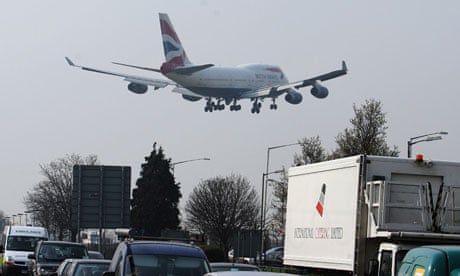A report released by the thinktank Civitas on Tuesday paints a damning portrait of Europe's flagship climate policy, the EU emissions trading scheme (EU ETS). The scheme, which polices roughly half the carbon emissions in Europe, was designed to help governments meet their climate goals by devolving responsibility to large polluters in the private sector. At the start of each year governments distribute a limited number of tradeable carbon certificates, and at the end of the year compliant factories and power stations are required to surrender certificates equivalent to the amount of CO2 they have emitted.
Civitas claims that the EU's trading scheme is a needlessly expensive and ineffective means to combat climate change, that it places an undue burden on consumers and businesses, and that it serves chiefly to line the pockets of greedy energy suppliers. In each of these respects, Civitas contradicts our own findings: at Sandbag, we have found emissions trading delivers carbon reductions at lowest cost, minimises the burden on consumers and businesses, and that the electricity sector has consistently shouldered the greatest effort under the scheme.
The problem with the EU trading scheme is relatively straightforward: an over-supply of carbon permits. The recession, as well as new overlapping policies, has reduced emissions below the pollution ceiling set by EU governments. This has eliminated any net demand for carbon permits until 2015 or beyond. Weak demand has in turn depressed the carbon price to its current low of €7 – roughly a third of where it stood only four years ago – and analysts expect it to languish there until 2020 without urgent political intervention.
But that doesn't mean the scheme is completely flawed. Encouragingly, several options for adjusting the supply of permits have been provisionally approved by the EU environment committee and will again be voted upon by the industry committee later this month.
But for Civitas, this is unwelcome news. While it acknowledges that the current carbon price is insufficient to drive essential investment in low-carbon technologies, it also argues that reducing the supply of permits will only serve to drive British and European companies to regions with weaker climate policies.
In saying this Civitas both exaggerates the level of international competition facing most companies covered by the scheme, and underplays the special protections companies have already been granted: in the current trading period (2008-2012), every single industrial sector in Europe has been awarded more permits than were required. Only the electricity sector faced a shortfall and had to buy carbon permits from auctions and the open market.
Civitas contends that the UK should renege on its commitments under both the trading scheme and the government's renewables obligation, and replace these with a carbon tax used to fund low-carbon electricity generation – specifically nuclear power. We wholeheartedly agree that decarbonising the power sector should be prioritised, but so far as we can tell, this is what has been happening all along, without government picking winners in advance. In fact, the story of the trading scheme to date has been one of the power sector undertaking all of the effort, purchasing some 934 megatonnes of carbon to meet its shortfalls, but failing to achieve any actual reductions due to 856 megatonnes of undeserved surplus permits in the industrial sectors that Civitas appears so keen to protect.
Over the forthcoming trading period (2013-2020), the electricity sector will purchase all of its pollution permits at auction, while industrial companies will continue to receive up to 100% of their permits for free depending on their exposure to international competition and their carbon efficiency compared with their European competitors.
This still leaves the question of how competitively exposed industries shoulder the indirect carbon costs contained, but the emissions trading directive entitles member states to compensate such industries where necessary, and indeed the chancellor's autumn statement announced a generous support package to do exactly this.
Some of the most cynical messaging in Civitas's report relates to aviation. Coverage in the Telegraph proclaimed the ETS will increase the price of a family trip to America by £80 next year, rising to £130 in 2020, and risks making Heathrow and other European airports uncompetitive. But these estimates assume that airlines will pass on the cost of the 85% of permits they have received for free to the consumer – something which should be impossible for a competitively exposed industry wishing to retain market share.
It also assumes that the cost of carbon will grow up to 2020, which is unlikely to happen without a political adjustment to the supply of carbon that would restore the environmental integrity of the scheme. The European commission currently estimates the extra cost of a transatlantic flight will be less than €2 per passenger.
The successful inclusion of aviation in the EU's trading scheme is a great political achievement, not only because it will start to control one of the fastest growing sources of global emissions, but because it helps evangelise carbon regulations to parts of the world that have so far been reluctant to shoulder them. This is an achievement the Durban platform does not aspire to until 2020.
Flights between Europe and other parts of the world can gain exemption from the ETS if equivalent measures for controlling carbon are in place. The principle is one of non-discrimination between European and non-European airlines. Given Civitas's acute concerns about competitiveness, it should be applauding the EU for its clever construction of this policy; instead its merits are submerged within the wider tide of the thinktank's remorseless pessimism towards emissions trading.
